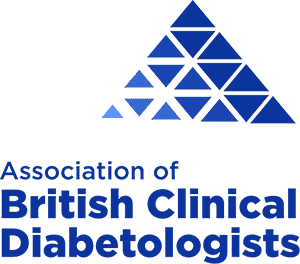WINNER
T1resources.uk; Rated, Reviewed, Reliable
by King’s College London & Health Innovation Network
T1resources.uk aims to improve the lives of people living with type 1 diabetes by introducing them to the wide range of resources and support that are available online. It’s intended as a set of signposts, a useful starting point for anyone wanting to begin to explore online information and social media to help them manage type 1 diabetes. Designed for people who are newly-diagnosed, its aim is to guide people toward their own unique selection of resources, channels and communities from the bewildering array available.
Judges comment:
“The judges absolutely loved this project, it hits a sweet spot and they personally felt the impact and the effectiveness of this. It’s an adaptive resource and wish this was here for when anyone is diagnosed. It addresses awkward conversations in an open, honest and comfortable manner. The team did astoundingly with this one.”
HIGHLY COMMENDED
Diabetes Wellness Events Empowering People in Effective Self-Management
by Diabetes Research & Wellness Foundation
The DRWF Wellness Day South brings together a wealth of information under one roof for people living with diabetes, their family members, carers, friends and those with an interest in diabetes. The event is run in close collaboration with local healthcare services, complementing and reinforcing key health messages to support optimised glycaemic control and psychosocial well-being. The programme has grown from workshops delivery to include a ‘hub’ area and satellite sessions throughout the day.
Judges comment:
“This high-quality submission is beautifully written and showcases a deeply innovative project. The impressive references back-up an already great initiative. The event is so diverse encompassing a wide range of resources, workshops and activities for people of all ages to partake in. The reach of the event is remarkable and it has clear sustainability.”
COMMENDED
Enjoy Food Project
by Diabetes UK
Diabetes UK’s ‘Enjoy Food project. Helping families with diabetes shop, cook and eat healthily’ was created in 2014, after research indicated that many people with type 2 diabetes found managing their diet the most challenging aspect of the condition. The project in the first two years was funded as part of Diabetes UK’s National Charity Partnership with Tesco. After project targets were met in the first year and second year internal resources were put in place to allow this project to continue to run for a third year without external funding.
Judges comment:
“This user-friendly submission came armed with visible evidence, backed up with healthcare professionals using it in routine practice. The resources are consistent, effective and colloquial throughout. The judges were really impressed with this project and the team’s effort.”
FINALIST
More Power to the Patient – System Wide Roll-Out of a Pocket Size Diabetes Medication Sick Day Rule
by ENHIDE
Patients with diabetes are more vulnerable to acute illness leading to hospitalisation, and those with pre-established renal disease are especially at risk of acute chronic kidney injury (AKI). ENHIDE developed a pocket-sized sick day guidance card to fit in wallets and purses for all patients with diabetes, and over 50,000 cards have been made available for patient use, with priority given to those patients admitted acutely with AKI, with the aim of reducing avoidable hospitalisation.
Judges comment:
“This is really impressive due to its low-cost and high reward programme. The team clearly worked hard and brilliantly executed a simple yet effective idea.”
FINALIST
Getting off to a Good Start: Structured Education from Day 1 in Type 1 Diabetes
by Forth Valley Royal Hospital
This structured education programme runs in a planned and elective manner from day-one of diagnosis to support those with type 1 diabetes and help them develop the fundamental skills and knowledge required to manage their condition. Its format and learning style have already been demonstrated to be effective To date it has given patients the confidence and ability to independently adjust insulin to achieve target glycaemic control, and target control is now achieved in 67% at 6 months as opposed to 30% prior to the programme.
Judges comment:
“The team produced an impressive service from start to finish generating excellent outcomes and ticking a lot of boxes. It is well-structured and the judges were pleased to see the project work effectively.”
To register your interest in QiC Diabetes 2018, please contact Amy Watson at awatson@pmlive.com














